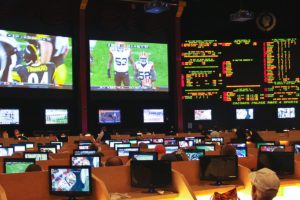Pennsylvania held a hearing over online gambling
After last year’s two failed bills, Pennsylvania is debating a third proposition to regulate online gambling in the state.
US.- Pennsylvania’s House Gaming Oversight Committee and Senate Community, Economic & Recreational Development Committee held a hearing with 15 witnesses on Tuesday to discuss the regulation of online gambling in the state. Gaming bill HB392 follows its two predecesors that were passed (yet failed to turn into actual law) last year and it includes provisions for online gambling, daily fantasy sports, a local share tax and a slot license operation fee.
The three-hour audience had many online gaming detractors, mostly land-based casino representatives, that stated it could affect its healthy revenue stream. Senators Lisa Boscola and Robert Tomlinson also worried about the impact it could have on said matter.
However, land-based SugarHouse Casino, which already operates an online casino in New Jersey, was more supportive to the bill than its pairs as General Manager Wendy Hamilton noted that online casinos can be a “business builder.”
Senior Vice President of Government Relations and Development at Caesars Entertainment, David Satz, exhorted speakers to “avoid scaremongering” and highlighted that regulating the market would provide more consumer protections and more tax revenue for Pennsylvania. Kevin O’Toole, Executive Director, and Doug Sherman, Chief Counsel of the Pennsylvania Gaming Control Board, continued Satz line of speec and clarified that online and land-based gamblers are not the same as evidenced in the little to no cannibalisation of revenue in other jurisdictions where they coexist.
In fact, online SugarHouse Casino players are eight years younger on average than their land-based SugarHouse counterparts. This may imply that online gaming can captivate the attention of the millennial market.
In addition, according to PlayPennsylvania, revenue from online gambling could reach US$230 million only in its first year, increasing to US$364 million annually. Most of this would come from new customers attracted by the new, legal market.
John Pappas, Executive Director of the Poker Players Alliance, accused critics of “sticking their heads in the sand” and argued that “states like Nevada, New Jersey and Delaware have created a very reasonable and effective approach to consumer protections.” Pappas concluded: “Will you support legislation to provide Pennsylvania players and taxpayers with a safe and well-regulated place to play poker and other games on the internet, or will you leave them with an unprotected market vulnerable to fraud?”
A new hearing has been scheduled for 20 March at 10 a.m. as House Bill 392’s future is still uncertain. Before the hearing, Senate Bill 477 was introduced and its identical to HB392.










